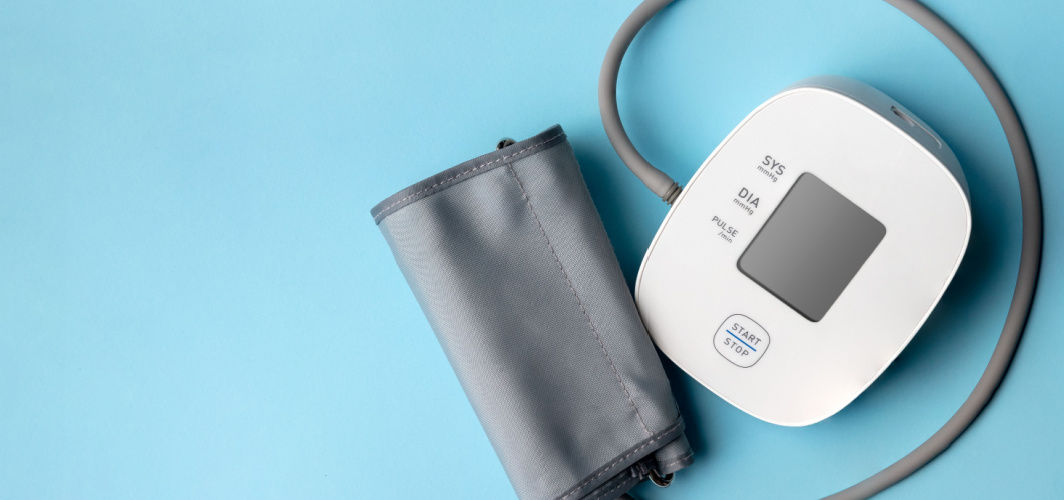- Home
- Blog
- General Health
Janumet Tablet: A Complete Guide for Diabetes Management
General Health
Janumet Tablet: A Complete Guide for Diabetes Management
By Apollo pharmacy, Published On- 25 February 2025
Share this article
0
0 like

Diabetes is a chronic condition that requires careful management to maintain overall health and well-being. Uncontrolled blood sugar levels can lead to serious complications, affecting various organs and daily life. Janumet tablet is a widely prescribed medication designed to help individuals with type 2 diabetes achieve better glycaemic control by combining two powerful antidiabetic agents.
This article will explore how Janumet tablet works, its key benefits, recommended dosage, potential side effects, and best practices for safe and effective use.
What is the Janumet Tablet?
Janumet tablet is a prescription medication for type 2 diabetes mellitus, combining metformin and sitagliptin to help regulate blood sugar levels. It is used alongside a healthy diet and exercise when lifestyle changes alone are not enough.
Metformin reduces glucose production in the liver, improves insulin sensitivity, and decreases sugar absorption in the intestines. Sitagliptin, a DPP-4 inhibitor, boosts insulin release after meals and lowers sugar production in the liver, helping to prevent blood sugar spikes. It should be noted that Janumet is not suitable for type 1 diabetes or diabetic ketoacidosis. Hence, one should always consult a healthcare professional before use.
Composition of Janumet Tablet
Janumet Tablet is a combination medication designed to effectively manage type 2 diabetes mellitus. It contains two key active ingredients that work together to regulate blood sugar levels:
- Metformin Hydrochloride (Biguanide): This primary component helps lower glucose production in the liver, enhances insulin sensitivity, and reduces sugar absorption in the intestines, leading to better blood sugar control.
- Sitagliptin (DPP-4 Inhibitor): This ingredient increases insulin production after meals while decreasing sugar release from the liver, helping maintain stable blood glucose levels.
Key Benefits of Janumet Tablet
Below are some of the key benefits of using this medication:
- Effectively Lowers Blood Sugar Levels: Janumet combines Metformin and Sitagliptin, two powerful antidiabetic agents that work together to regulate blood glucose levels, helping individuals with type 2 diabetes achieve better control over their condition.
- Reduces the Risk of Diabetes-Related Complications: Proper blood sugar management with Janumet helps prevent serious complications such as kidney damage, nerve problems, vision loss, and limb amputation, ensuring better long-term health outcomes.
- Supports Heart and Cardiovascular Health: Uncontrolled diabetes increases the risk of heart disease and stroke. Janumet helps in maintaining stable blood sugar levels, reducing the likelihood of cardiovascular complications.
- Helps Maintain a Healthy Weight: Unlike some diabetes medications that cause weight gain, Janumet has a lower risk of leading to excessive weight gain, making it a preferred option for those aiming for better weight management.
- Improves Overall Quality of Life: By providing better blood sugar control and reducing diabetes-related risks, Janumet enables individuals to lead a more active and fulfilling life, especially when combined with a healthy diet and regular exercise.
How Does Janumet Tablet Work?
Janumet Tablet helps manage type 2 diabetes by combining two active ingredients, Sitagliptin and Metformin, which work together to lower blood sugar levels. Sitagliptin, a DPP-4 inhibitor, increases the levels of incretin hormones in the body. These hormones stimulate the pancreas to produce more insulin after meals while also reducing the liver’s glucose production. Sitagliptin works only when blood sugar levels are high, reducing the risk of hypoglycemia (low blood sugar).
Metformin, on the other hand, helps lower blood sugar by reducing glucose production in the liver and limiting sugar absorption in the intestines, while also improving the body's insulin sensitivity. Together, these actions help regulate blood sugar levels throughout the day, making Janumet an effective treatment for type 2 diabetes when used alongside a balanced diet and regular exercise.
How to Use Janumet Tablet?
The dosage of Janumet tablet depends on individual medical needs and should be taken as prescribed by a doctor. General usage guidelines include:
- Adults (18 years and above): The usual dose is one tablet twice daily, taken with meals to reduce the risk of stomach discomfort. The dosage also depends on blood sugar levels and individual response to treatment.
- Elderly (65 years and above): Janumet should be used with caution, as kidney function tends to decline with age. A doctor may adjust the dose based on health conditions and kidney function tests.
- Not recommended for: Individuals with type 1 diabetes, severe kidney or liver disease, or diabetic ketoacidosis. It should also be avoided by those allergic to any of its ingredients.
For best results, take Janumet regularly at the same time each day, along with a healthy diet and regular exercise, as advised by your doctor.
Safety and Precaution
Before taking Janumet Tablet, it is important to consider the following safety precautions to ensure its proper and safe use:
- Alcohol (Unsafe): Avoid consuming alcohol while taking Janumet, as it can increase the risk of low blood sugar (hypoglycemia) and lactic acidosis, a rare but serious condition.
- Pregnancy (Consult Your Doctor): Janumet may not be safe during pregnancy. Your doctor will assess the benefits and potential risks before prescribing it.
- Breastfeeding (Consult Your Doctor): This medication may pass into breast milk, potentially harming the baby. It is recommended to speak to your doctor before using Janumet while breastfeeding.
- Driving (Use with Caution): Low or high blood sugar levels can affect concentration and reaction time. Avoid driving if you experience dizziness, blurred vision, or confusion due to fluctuating blood sugar levels.
- Kidney Health (Use with Caution): Janumet should be used with caution in individuals with kidney disease, as it may require dose adjustments. It is not recommended for severe kidney impairment, and regular kidney function tests are advised.
- Liver Health (Unsafe): Janumet is not recommended for patients with liver disease, as it may increase the risk of side effects. Consult your doctor for alternative treatment options.
Side Effects of Janumet Tablet
Like all medications, Janumet tablet may cause side effects, though not everyone will experience them. It is important to be aware of potential reactions and seek medical attention if needed.
1. Serious Side Effects (Seek Immediate Medical Help)
Stop taking Janumet and get emergency medical help if you experience signs of an allergic reaction, including:
Hives, difficulty breathing, or swelling of the face, lips, throat, or tongue.
Severe skin reactions, such as fever, sore throat, burning eyes, skin pain, or a red/purple rash that spreads and causes blistering or peeling.
2. Signs of Pancreatitis (Call Your Doctor Immediately)
- Severe stomach pain that spreads to the back.
- Nausea, vomiting, loss of appetite.
- Fast heartbeats or unusual weakness.
3. Risk of Lactic Acidosis (Rare but Serious Condition)
Some individuals taking metformin may develop lactic acidosis, a potentially fatal condition. Stop taking Janumet and seek urgent medical attention if you experience:
- Unusual muscle pain, feeling cold, or difficulty breathing.
- Dizziness, extreme tiredness, or weakness.
- Severe stomach pain, nausea, or vomiting.
- Slow or irregular heartbeat.
4. Other Serious Side Effects (Call Your Doctor Right Away)
- Severe or persistent joint pain.
- Blisters or peeling of the outer layer of skin.
- Little or no urination (a sign of kidney problems).
- Shortness of breath, swelling in the legs or feet, or rapid weight gain.
Signs of low blood sugar, such as dizziness, sweating, shakiness, hunger, or a rapid heartbeat (more likely if taken with insulin or other diabetes medications).
5. Common Side Effects
Some side effects of Janumet are mild and may improve over time. These include:
- Low blood sugar (if taken with insulin or other diabetes medications).
- Digestive issues, such as nausea, diarrhoea, indigestion, bloating, or vomiting.
- Headache or general weakness.
- Cold-like symptoms, including a runny or blocked nose, sneezing, or sore throat.
Who Should Use Janumet Tablet?
Janumet Tablet is suitable for adults with type 2 diabetes who need better blood sugar control. It is recommended for individuals who:
- Have Uncontrolled Blood Sugar Levels – Helps manage blood glucose when diet and exercise alone are not enough.
- Require Dual Therapy – Ideal for those who need a combination of Metformin and Sitagliptin to effectively regulate insulin production and glucose absorption.
- Want to Reduce the Risk of Diabetes Complications – Helps prevent serious health issues such as kidney disease, nerve damage, and heart problems.
- Prefer an Oral Diabetes Medication – A convenient tablet formulation for those who need an easy-to-take treatment option.
Who Should Avoid Janumet Tablet?
Janumet Tablet may not be suitable for certain individuals due to potential health risks. You should avoid using Janumet if you:
- Are allergic to Metformin, Sitagliptin, or any excipients – Risk of severe allergic reactions.
- Have Type 1 Diabetes or Diabetic Ketoacidosis – Janumet is not intended for managing these conditions.
- Have Severe Kidney Disease – Impaired kidney function can lead to complications, and Janumet is not recommended for those with advanced kidney issues.
- Have Liver Disease – Janumet may worsen liver conditions and should be avoided in patients with liver impairment.
- Have a History of Lactic Acidosis – Metformin increases the risk of this serious condition, which can be fatal.
- Are Pregnant or Breastfeeding – Safety data is limited, and it may pose risks to the baby. Consult your doctor before use.
- Have a History of Pancreatitis – Janumet may increase the risk of inflammation of the pancreas, which can be severe.
- Take Certain Medications – Some drugs, including alcohol, diuretics, steroids, and certain heart medications, may interact with Janumet, affecting its safety and effectiveness.
Quick Tips for Diabetes Management
- Take Janumet with meals to reduce the risk of stomach upset and improve absorption.
- Monitor your blood sugar levels regularly to track progress and adjust your treatment plan if needed.
- Stay active by incorporating regular exercise, such as walking or light workouts, to improve insulin sensitivity.
- Follow a balanced diet rich in fibre, lean proteins, and healthy fats while limiting sugary and processed foods.
- Stay hydrated and avoid excessive alcohol consumption to support overall metabolic health.
- Take Janumet consistently as prescribed by your doctor to achieve the best blood sugar control.
Services
General Health
Frequently asked questions
You should stop taking Janumet only if advised by your doctor. Discontinue use and seek medical attention if you experience severe side effects, such as signs of lactic acidosis, pancreatitis, or an allergic reaction. Do not stop taking Janumet suddenly without consulting a healthcare professional, as it may affect blood sugar control.
Janumet may cause some side effects, including nausea, diarrhoea, headaches, indigestion, and cold-like symptoms. Serious side effects, though rare, may include lactic acidosis, pancreatitis, severe joint pain, kidney problems, or allergic reactions. If you experience any unusual or severe symptoms, contact your doctor immediately.
Janumet should be taken with meals to help reduce the risk of stomach upset and improve its absorption. It is typically taken once or twice daily, depending on your doctor’s prescription.
Janumet is intended to be used alongside a healthy diet and regular exercise. While it is effective in lowering blood sugar, lifestyle changes are essential for optimal diabetes management. Your doctor may also recommend additional medications if needed.
Leave Comment
Services
Recommended for you

General Health
7 Health Benefits Of Pumpkin Seeds
Discover the numerous health benefits of pumpkin seeds, from improved heart health to enhanced immunity.

General Health
Lower Abdominal Pain: Causes, Symptoms and Treatment
Discover the underlying causes, common symptoms and effective treatment options for lower abdominal pain. Learn how lifestyle factors and new technologies can help alleviate discomfort and improve your overall well-being.

General Health
10 Best Blood Pressure Monitors In India
Looking for the best blood pressure monitor in India? Check out our list of the 10 best blood pressure monitors in India and make an informed decision about your health.
Subscribe
Sign up for our free Health Library Daily Newsletter
Get doctor-approved health tips, news, and more.
